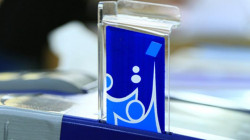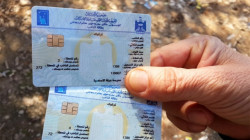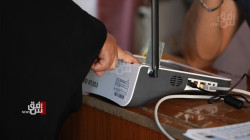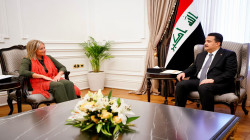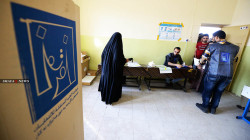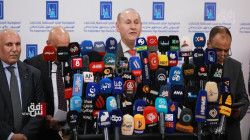Military candidacy in elections resurfaces with Al-Sudani-Al-Fayyadh pact
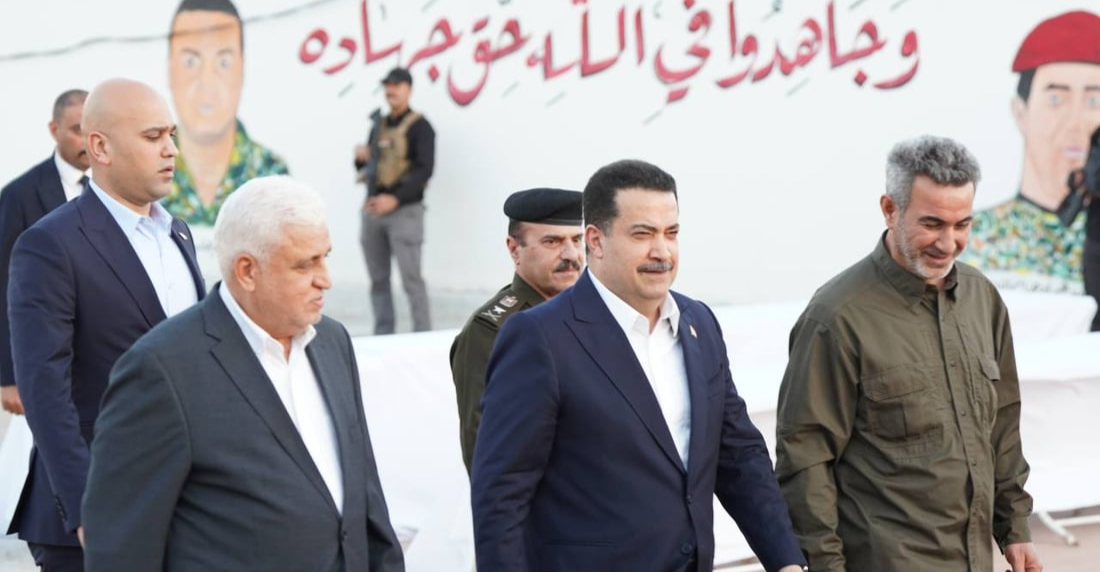
Shafaq News/ With Iraq’s parliamentary elections set for November 11, political maneuvering is intensifying as Prime Minister Mohammed Shia al-Sudani announces a sweeping coalition that has drawn legal scrutiny for including a sitting military figure.
Iraq’s political alliances have long stirred controversy, but tensions spiked when al-Sudani revealed an electoralpartnership with Faleh al-Fayyadh, head of the Popular Mobilization Forces (PMF), a state-sanctioned armed force.
Eligibility to Run for Office
The Iraqi constitution, under Article 9/C, strictly prohibits members of the armed forces—including those under the Ministry of Defense—from running for political office. The same clause bars them from campaigning or engaging in political activities, whether in a personal or official capacity, though it affirms their right to vote.
“The ban applies to all security and military personnel unless they formally resign and their resignation is accepted,” said Hassan Hadi Zayer, a member of the Independent High Electoral Commission’s (IHEC) media team, adding that it also extends to IHEC employees themselves.
Despite these legal constraints, al-Sudani on Tuesday unveiled the Alliance of Reconstruction and Development (Al-Ima’ar wal Tanimia), a seven-party bloc set to contest the November vote.
The coalition includes al-Sudani’s Furatain Movement, the Sumer Homeland Gathering (Tajammo’ Ahali Sumer) led by Labor Minister Ahmed al-Asadi, the Al-Wataniya Coalition of former Prime Minister Iyad Allawi, the Karbala Creativity Alliance (Ibda’a Karbala) under Karbala Governor Nassif al-Khattabi, the Generations Gathering (Tajamo’ Ajyal) led by MP Mohammed al-Sayhoud, the National Solutions Alliance (Houloul) headed by Mohammed Sahib al-Darraji, and the National Contract Movement (Al-Aqd Al-Watani), led by PMF Chief Faleh al-Fayyadh.
Al-Fayyadh has headed the PMF since 2014, a role central to Iraq’s security apparatus.
Constitutional Commitment
Legal expert Jamal al-Asadi said the move raises constitutional red flags. “The constitution excludes security agencies from political life to prevent conflicts of interest’ he told Shafaq News, adding that “yet, adherence to this principle has been weak since the constitution was drafted,” he told Shaafq News.
Al-Asadi noted that the IHEC could petition the Federal Court for a constitutional interpretation to clarify eligibility criteria.“Parliament also bears the responsibility to set clear mechanisms for military personnel, such as resignation or detachment at least six months before elections,” he added.
Iraq currently lacks a definitive framework, allowing legal loopholes. “Military factions often create political fronts that field candidates while retaining control from behind the scenes,” al-Asadi said.
He criticized what he called selective legal interpretations driven by political agendas, arguing that “opponents of al-Fayyadh try to block his candidacy based on biased interpretations influenced by Western thinking aimed at excluding PMF figures from politics.”
Parties and Armed Factions
Political analyst Mujashaa al-Tamimi echoed the concerns, noting that while Law No. 36 of 2015 prohibits parties with military affiliations, it lacks effective enforcement to regulate the involvement of armed groups in elections.
“These entities continue to operate through political proxies, undermining the separation between military and civilian spheres,” al-Tamimi warned, calling for urgent legislative reform.
“The law must be amended to clearly define military affiliations and expand the powers of oversight bodies, particularly the electoral commission, to safeguard Iraq’s democratic process.”
From a political perspective, Jassem al-Moussawi, MP from the State of Law Coalition (led by Nouri Al-Maliki), defended the new bloc, saying it reflects political forces’ confidence in al-Sudani’s agenda, especially with him leading the government.
He emphasized that the alliance, while part of the broader Coordination Framework, remains diverse. “Each bloc has its platform and base. The competition should be based on policy, not mutual defamation,” al-Moussawi concluded.
